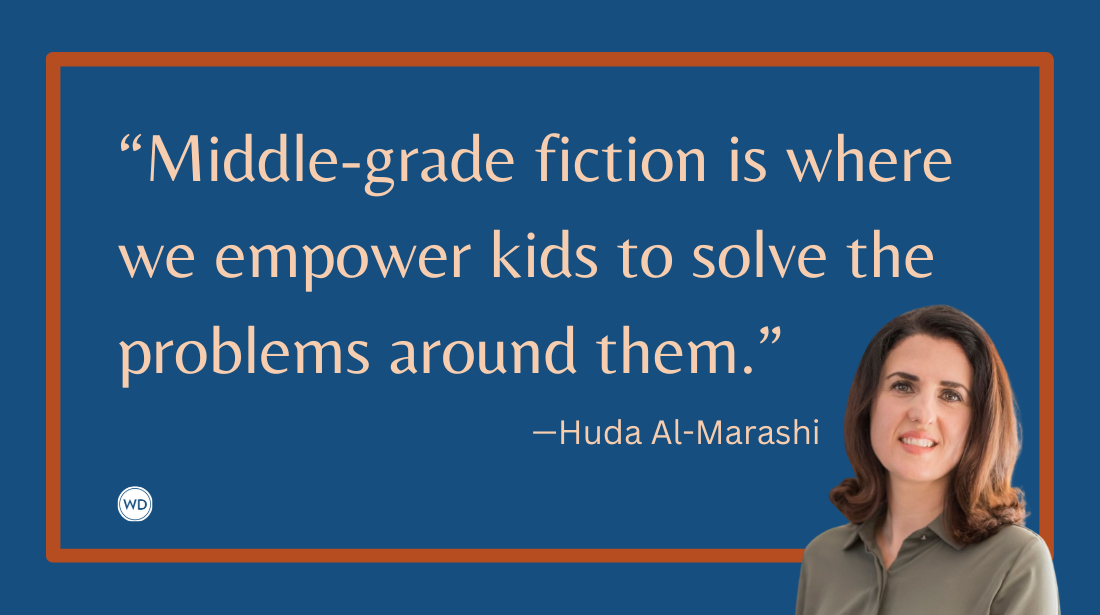Writing Mistakes Writers Make: Not Knowing When to Shelve a Project
The Writer’s Digest team has witnessed many writing mistakes over the years, so we started this series to help identify them for other writers (along with correction strategies). This week’s writing mistake is not knowing when to shelve a project.
Everyone makes mistakes—even writers—but that's OK because each mistake is a great learning opportunity. The Writer's Digest team has witnessed many mistakes over the years, so we started this series to help identify them early in the process. Note: The mistakes in this series aren't focused on grammar rules, though we offer help in that area as well.
Rather, we're looking at bigger picture mistakes and mishaps, including the error of using too much exposition, neglecting research, or researching too much. This week's writing mistake writers make is not knowing when to shelve a project.
Writing Mistakes Writers Make: Not Knowing When to Shelve a Project
I think there’s a common misconception in the writing community that if you start a project, you have to finish it. If you don’t commit to finishing it, then you must abandon it.
Not only is this thinking silly, but it’s also dangerous. It can put writers in an overwhelming place creatively. You might love your project, your characters, the plot, and you know you can reach people with your message … yet, you can’t seem to follow through. You don’t want to keep through the daily slog of trying to write something that doesn’t seem to want to be written, but it’s equally painful to consider throwing the entire thing into the metaphorical (or literal, if you’re a fan of printing or handwriting) trash bin.
The first time someone recommending shelving one of my projects was during my MFA program. My first planned thesis project was a 10-part short story collection with each story set in the same small town, each presenting themes of the particular loneliness and isolation that comes from keeping secrets. I wrote about half of the short stories for workshops, but none of them seemed to hit the mark. My classmates could see where I wanted to go—I could see where I wanted to go—but it was like the road had been washed away between where my project was and where I wanted it to be. “There’s something missing,” my classmates would say, “I like the plot, but it just feels a little flat.”
In a one-on-one with my instructor, he gently suggested I put the project away for a while.
“It’s an ambitious task,” I remember him saying, “to write from the perspectives of people who are 30 or 40 years older than you are now. Maybe give your writing a chance to catch up to your ideas.”
That was a lightbulb moment for me. Writing isn’t a now-or-never task; no one will come to my house and shame me if I throw my work into a bottom drawer until I’m ready to keep going with it. What I was experiencing wasn’t creative burnout or writer’s block; I just wasn’t ready to create that narrative in a way that would satisfy my readers (and myself). Sometimes, we might need to hone our craft before we can do our stories justice on the page.
If you’ve been working on a project and experiencing some of the following symptoms, it might be time to consider putting your project on the shelf:
- Every time you sit at your desk to write, you feel stuck or overwhelmed by frustration. Even getting 100 words onto the page can be painful. Sometimes, you might even get angry at yourself for not being able to write.
- You begin to avoid writing your project, whether it’s disguised as researching or opening up your Word document only to scroll through Pinterest for an hour or even just being “too busy” to write (although deep down, you might know that’s an excuse).
- There’s another project calling to you. You are becoming resentful because you’d like to finish this project before starting the next one, but when you daydream, your thoughts are consistently pulled in a direction that’s away from your current project.
Your resistance might be one or all of these, or it might be something totally different. But if you’re feeling like you want to stop working on something, how do you know it’s time to put it on the shelf?
Mistake Fix: Reevaluate Your Project
If you’re still feeling antsy about putting your project away, there are some steps you can take to make sure that what you’re experiencing isn’t simply creative burnout or writer’s block.
1. Have someone else take a look
There’s never a better time to utilize the writing community than when you can’t see the forest for the trees. If you’re really struggling with a project, enlist the help of a writing friend to evaluate your manuscript as-is and see if they can help you brainstorm a way through. If this process reinvigorates you, keep working! But if you’re still feeling frustrated and stuck after getting input, it might be time to give yourself a break.
2. Put it away for a limited time
Sometimes when a writer takes on a large task creatively, it can lead to burnout and writer’s block. When we try to force our way through, we might become more frustrated and resentful of the work. This can especially be true when writing themes and plots that tap into the writer’s deepest emotions. To ensure that you’re not experiencing these symptoms, shelve your project for a specific timeframe—I usually give myself a month. During that time, maybe spend your usual writing time journaling or writing short pieces or drafting character sketches for another project; anything to keep your creative brain engaged while giving yourself space to process. Then, when the time comes, sit back down with the original project and see if you feel any differently about it. If this time away has allowed you to see a way through whatever had been blocking you, keep writing! But if the original challenges persist, it might be time to shelve the work.
3. Reevaluate your project’s goals
This was particularly helpful for me after my professor suggested I shelve my short story collection. I asked myself, “When the reader sits down and reads this, what do I want them to feel? What do I want them to take away?” After answering those questions, I asked myself, “Can I achieve that at my current level of craft in a way that will give the reader the experience I’m looking for?”
For me, the answer was clearly no. I had more growing to do as a human and as a writer before I could complete that project in a way that I would be satisfied with. This meant that it was time for me to put that project away and find something else to work on.
The most difficult part for me about shelving a project is not knowing when will be ready for me to return to. I’m someone who loves deadlines, structure, neat-and-tidy plans. There’s no clear timeline for when shelving something will give it time to take a form you find yourself able to work with. You simply have to keep checking in on the project to see how you feel about it, whether that's every few months or every few years, and see if you’re ready to dive back into it.
In closing, Victor LaValle, one of my favorite authors, recently posted a tweet that spoke to this. He said, “Dug up a draft of a story I wrote in 1997. It had a lot of power but never quite worked. It needed time to ferment. Today, I see exactly how to make it work. I wasn’t ready to write it then, but I am now.”








